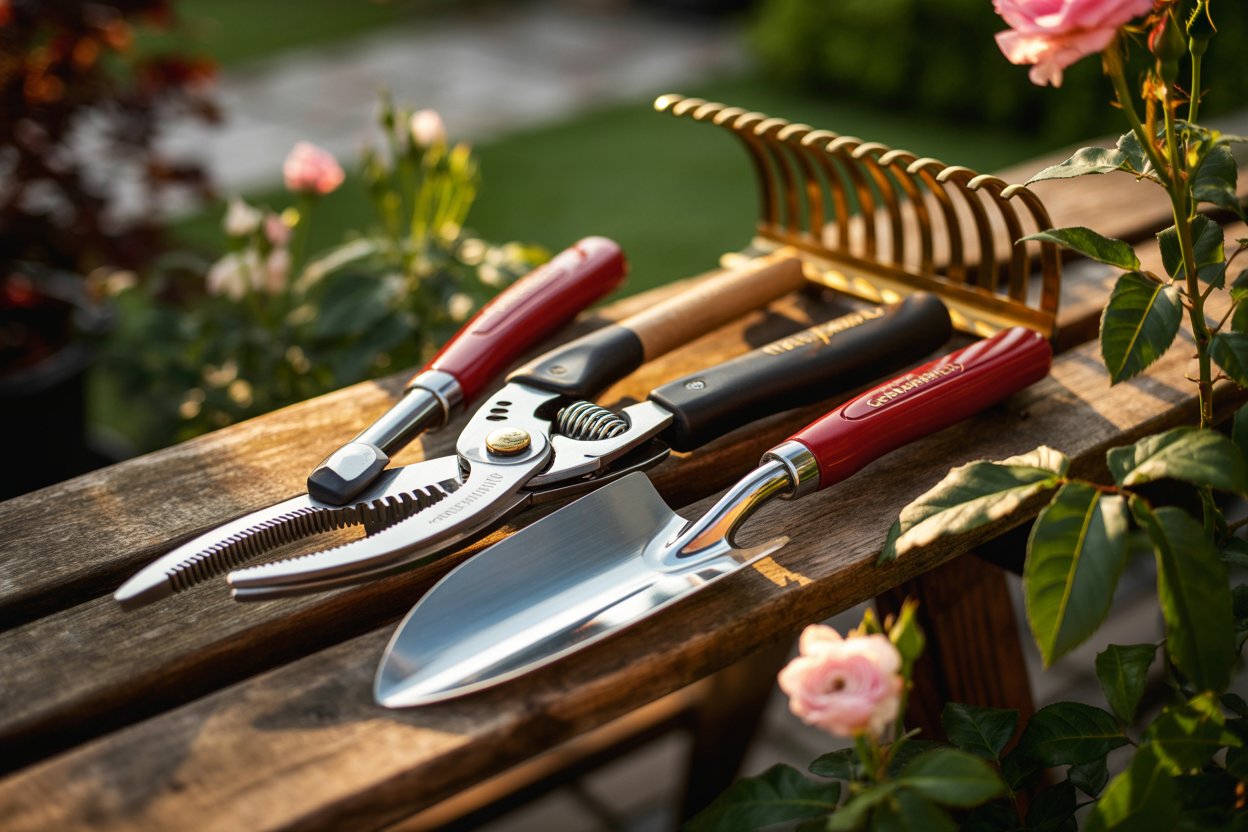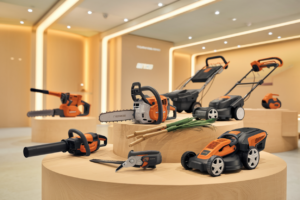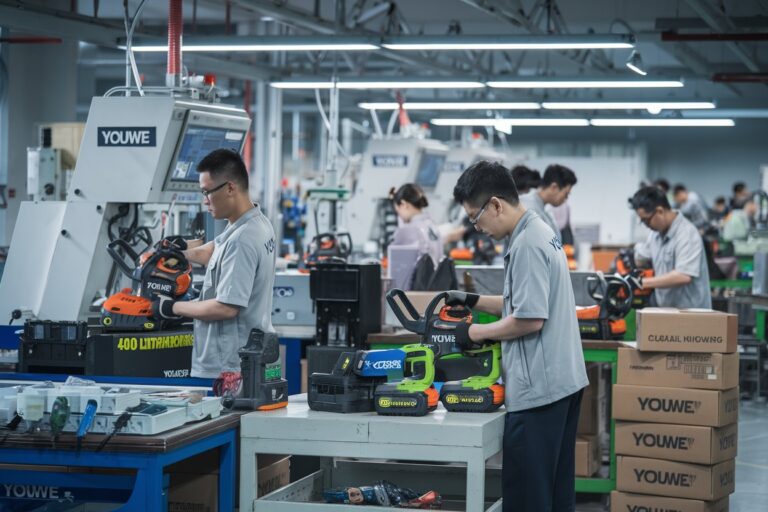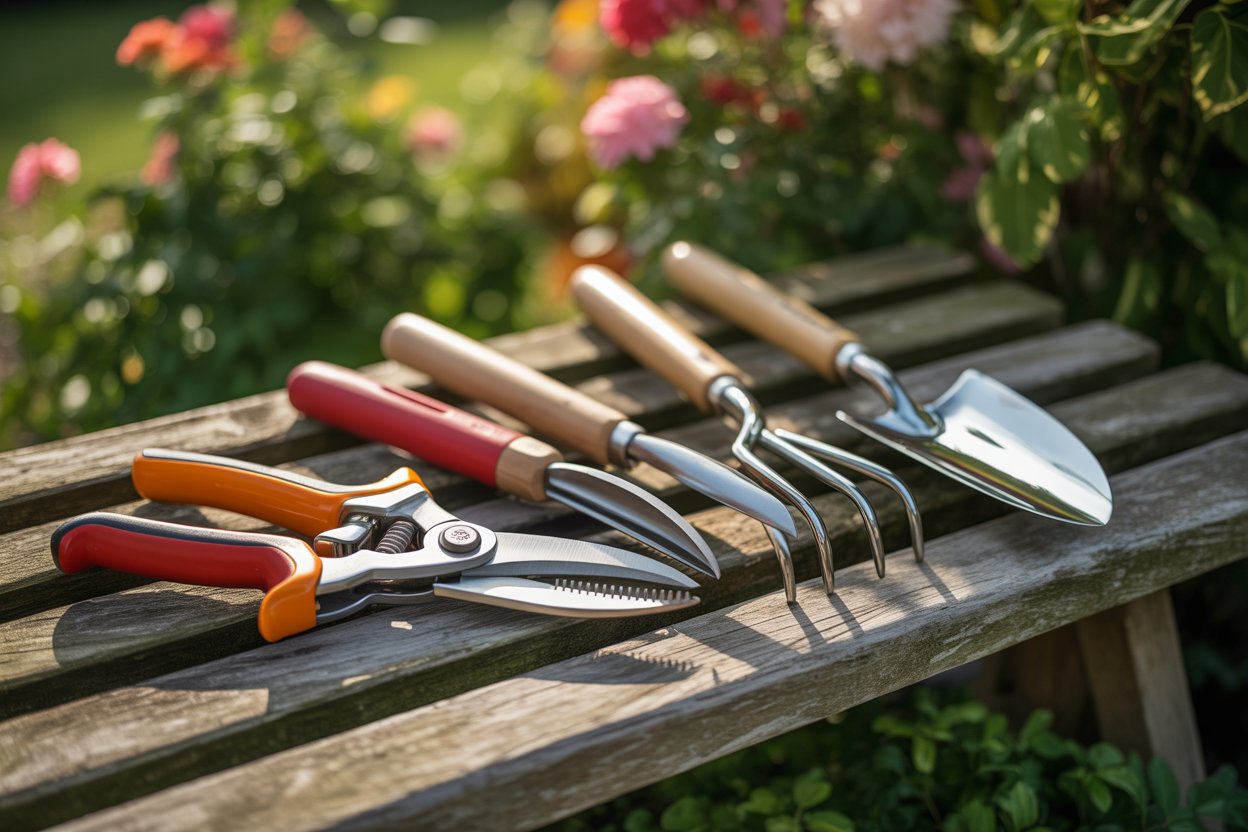
Many people love gardening, but few realize how much a tool’s origin affects its performance and durability. You might have tried different brands, only to find that some last just one season. That frustration grows when you invest in something that doesn’t live up to the promise. The truth is, when it comes to garden tools, German brands1 have earned a global reputation for precision, strength, and reliability. But what exactly makes them stand out?
The most famous German garden tool brands are Wolf-Garten and Gardena, both known for engineering excellence, ergonomic design, and long-term durability.
German brands focus on user experience, technical precision, and sustainability. Over the years, I’ve seen many B2B clients in Europe shift from cheaper alternatives to reliable German-made products, simply because they reduce warranty claims and boost customer satisfaction2.
Where are Wolf-Garten tools made?
Wolf-Garten3 is one of the oldest and most trusted names in the garden tool industry. It was founded in 1922 in Betzdorf, Germany, and remains a symbol of engineering excellence4 today. Many buyers still ask if Wolf-Garten products are “truly made in Germany.” It’s a fair question, especially when global manufacturing is often spread across several countries.
Most Wolf-Garten tools are designed and developed in Germany, with production still taking place largely in European facilities to maintain quality standards.
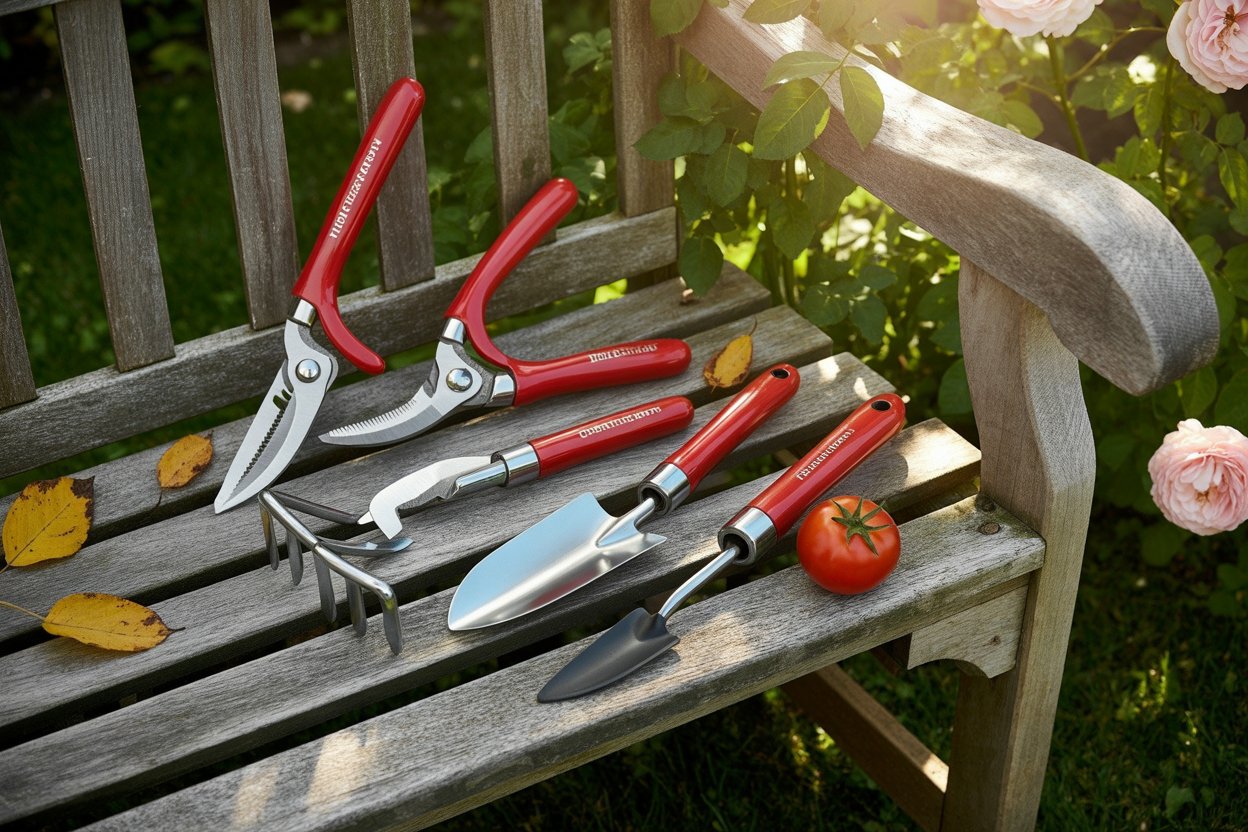
Wolf-Garten’s commitment to German manufacturing is more than a marketing statement—it’s a philosophy. The company maintains strict control over its materials, coatings, and ergonomics. When I once visited a European distributor who had handled Wolf-Garten for over ten years, he told me something that stuck with me: “Customers don’t come back with complaints. They come back to buy the same product again for a friend.” That level of trust doesn’t happen by accident—it’s built through decades of consistency.
Dive Deeper: The engineering mindset behind Wolf-Garten
German manufacturing has a unique DNA. Every product starts with precision drawings, material testing, and continuous refinement. Wolf-Garten’s engineers often spend months testing the resistance and torque of their cutting blades under different environmental conditions. They believe that small differences—like the steel hardness or handle angle—directly affect user comfort and tool life.
This mindset is what sets them apart. When you hold a Wolf-Garten pruning shear5, it feels balanced, not heavy. The mechanism locks smoothly without gaps. It’s designed not only for function but for fatigue reduction. That’s why even after a long day of trimming6, your hands don’t ache the same way they might with cheaper models.
In my experience working with international buyers, the term “Made in Germany” still holds immense value. Many wholesalers and importers use it as a selling point to justify higher prices, because customers associate it with trust and craftsmanship. Wolf-Garten is a perfect example of how that trust is earned—not by slogans, but by measurable quality.
What are the benefits of using Gardena products?
Gardena7 is another pillar of the German garden tool industry. Founded in Ulm in 1961, it became a pioneer in modular garden systems8. If you’ve ever connected hoses or watering systems with snap-fit joints, you’ve probably used something inspired by Gardena.
The benefits of using Gardena tools lie in their modular design, ease of use, and compatibility across multiple garden applications.
The brand’s philosophy revolves around convenience and sustainability. Many of my European clients prefer Gardena because of how its “One System Fits All” design simplifies both inventory and customer education. Retailers love that they can explain the product line in one sentence: “All accessories work together.”
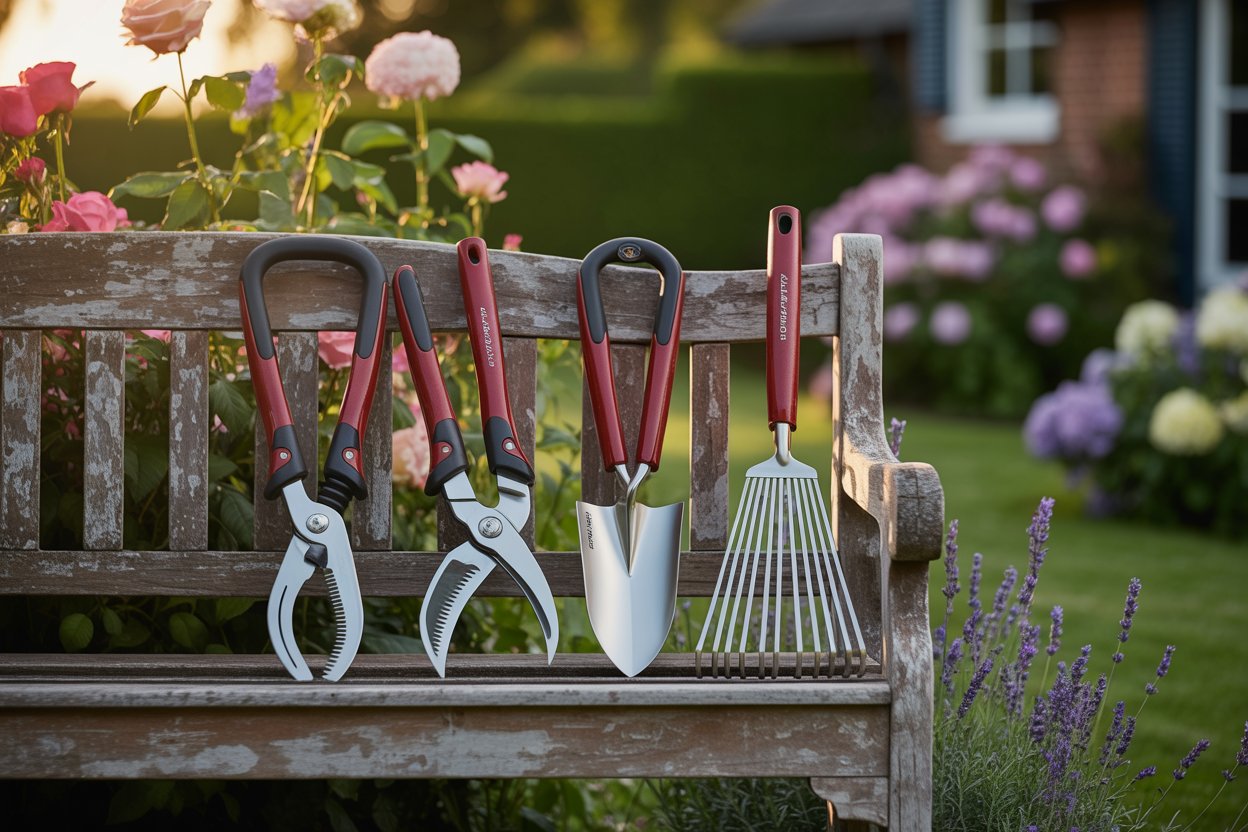
Dive Deeper: Why Gardena became a global standard
What truly made Gardena successful was its focus on user-centered engineering. Instead of designing isolated products, they built an ecosystem. The company realized early that garden care was becoming more complex—watering systems, lawn care, and soil management all required coordination. So, Gardena created a universal connection system that allowed tools, hoses, and sprinklers to be interchangeable.
This concept changed the industry. It inspired competitors and even influenced how many modern manufacturers (including us at YOUWE) think about modular tool design. I’ve seen importers reduce their after-sales service costs by switching to Gardena-type connectors because they’re intuitive and require less technical explanation.
The materials Gardena uses—like frost-resistant plastics and UV-protected polymers—are chosen for long outdoor life. That’s crucial in markets with diverse climates, from Italy’s sun to Germany’s cold winters. For B2B buyers, it means fewer warranty replacements and stronger customer retention. Gardena’s innovation isn’t just about convenience—it’s about creating a system that lasts and adapts.
Who makes Scott’s garden tools interchangeable?
Many people confuse Scotts with European brands, but it’s actually an American company best known for fertilizers, seeds, and lawn care solutions. However, its garden tools are part of partnerships with different manufacturers across regions.
Scotts garden tools are produced through licensing agreements, often in collaboration with trusted global tool manufacturers who provide interchangeable systems compatible with Scotts-branded equipment.
The interchangeable aspect usually refers to tools that fit into shared handle or connection systems. While Scotts doesn’t produce its own hand tools in Germany, it adopts the modular approach similar to Gardena’s.
Dive Deeper: How brand partnerships shape product identity
In the modern garden tool market, brand identity isn’t always tied to where something is made—it’s tied to who designs it and how it’s integrated into larger ecosystems. Scotts leverages its reputation in lawn care to expand into hardware tools through partnerships. This allows them to offer complete solutions—from soil to trimming—without having to build manufacturing plants.
For buyers, this setup offers both advantages and risks. On one hand, Scotts’ partnerships give them access to globally distributed tools that are easy to source. On the other hand, consistency can vary depending on which factory handles the production batch. That’s why professional buyers like Deivis Lescano often verify certification and factory background before committing to a purchase.
As someone who’s worked with multiple tool OEMs, I’ve learned that interchangeable systems9 only work well when tolerances are tightly controlled. Even a 0.5 mm variance in connector size can lead to loose fittings or leakage. German and Japanese manufacturers excel at this precision; that’s why many global brands outsource these components to European engineering firms even today.
Conclusion
German garden tool brands like Wolf-Garten and Gardena have become symbols of precision and reliability. Their focus on engineering detail, material strength, and ergonomic comfort sets them apart from mass-market alternatives. Meanwhile, companies like Scotts expand this legacy by building modular compatibility through partnerships.
In my years working with global buyers, I’ve learned one truth: a good garden tool is not just a piece of metal—it’s a bridge between design and trust. Whether you’re a retailer, importer, or home gardener, choosing a tool made with care will always pay off in the long run.
FAQs About German Garden Tool Brands
1. Are all German garden tools made in Germany?
Not all of them. While brands like Wolf-Garten and Gardena still design and engineer their products in Germany, some production processes may take place in other European countries to balance quality and cost. The key is that quality control and design standards are still managed under strict German supervision.
2. Which is better for home gardeners—Wolf-Garten or Gardena?
It depends on your needs. Wolf-Garten is known for precision cutting tools like shears and trimmers, ideal for hands-on gardening. Gardena, on the other hand, offers a full ecosystem of watering, cleaning, and lawn care tools that connect easily. If you value compatibility and modular systems, Gardena might suit you better.
3. Why are German garden tools more expensive than others?
The higher price reflects engineering precision, premium materials, and durability. German brands test their tools under real working conditions to ensure longevity. For wholesalers and distributors, this often means fewer returns and higher customer satisfaction—making it worth the investment.
4. Do Gardena tools work with non-German systems?
Yes, but compatibility can vary. Gardena’s connectors use standard diameters that often fit other European or U.S. systems. However, to ensure perfect performance, it’s best to use tools within the Gardena system, as they’re designed to work seamlessly together.
5. How can I tell if a garden tool is truly made in Germany?
Look for the “Made
-
Explore the top German brands known for their precision and reliability in garden tools. ↩
-
Discover the link between quality garden tools and customer satisfaction. ↩
-
Discover the engineering excellence and history behind Wolf-Garten, a leader in garden tools. ↩
-
Understand the principles of engineering excellence that set top garden tools apart. ↩
-
Explore this link to discover top-rated pruning shears that combine precision and ergonomic design, ensuring a comfortable gardening experience. ↩
-
Explore this link to discover top-rated trimming tools that enhance your gardening experience with precision and comfort. ↩
-
Learn about Gardena’s innovative designs and how they revolutionized garden tool systems. ↩
-
Discover the advantages of modular garden systems for efficient gardening. ↩
-
Understand how interchangeable systems enhance compatibility and convenience. ↩


